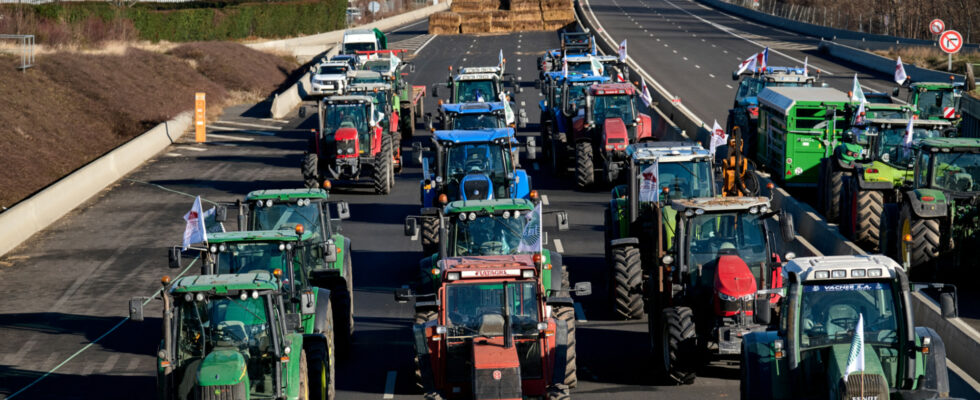Ophélie Artaud / Photo credit: Maxime Fraisse / Hans Lucas / Hans Lucas via AFP
Towards a “Paris blockade” this Friday? This is what two agricultural unions, the FDSEA and Jeunes Agriculteurs d’IDF, are considering. For several days, French farmers have intensified their mobilization and 80 departments have been affected by blockages. Everyone is hoping for “concrete responses” from the government in the face of the explosion in agricultural charges and standards, and their difficulty in coping with inflation.
But French farmers are not the only ones to make their anger heard. In Germany, the Netherlands, Romania and Poland too, discontent in the agricultural sector is gaining ground. Other European countries could soon join the demands. If European policies are singled out in all States, other internal political decisions have pushed the agricultural sector to rise up. Europe 1 takes stock, country by country.
Germany
Across the Rhine, the mobilization of farmers began at the beginning of January. The demonstrators oppose the removal of a tax advantage on fuel for their agricultural machinery, announced by the government of Olaf Scholz last December. For its part, the German state justifies its intention to reduce subsidies to the sector by calling constitutional judges to order concerning the country’s budgetary rules. While on January 15, more than 5,000 tractors drove towards Berlin, the government decided to relax this decision, announcing that it would gradually eliminate this tax advantage until 2026, which did not convince farmers. They continue their mobilization, and have been joined in recent days by artisans and traders.
The Netherlands
Dutch farmers were the first to express their anger, from June 2022. Here too, it was a government decision that ignited the powder: the announcement of a drastic reduction in nitrogen emissions, by reducing the country’s livestock. For several months, thousands of Dutch farmers have been organizing blockades at the wheel of their tractors, protesting in front of politicians’ homes, and symbolically turning over the Dutch flag. Also, proof of the importance of the movement in the country, a new party bringing together farmers, the “Farmer-Citizen Movement”, made a strong entry into the Senate in March 2023.
Poland and Romania
Eastern Europe is not spared from the farmers’ revolt. For several months, farmers from countries bordering Ukraine, notably Poland, Romania, Slovakia, Hungary and Bulgaria, have denounced “unfair competition” from the country at war. They accuse him of undercutting the price of his cereals. Especially since a few months after the Russian invasion, in May 2022, the European Union announced that it would suspend customs duties on products imported from Ukraine, and create “solidarity corridors” to allow Kiev the passage of its grain stocks.
In Poland, for example, where 160 roads were blocked this Wednesday, demonstrators denounce “uncontrolled” imports of Ukrainian agri-food products and demand a review of the Common Agricultural Policy (CAP).
Ukrainian competition is singled out by Romanian farmers, who are also demonstrating to oppose the taxes deemed exorbitant put in place by their government. On January 14, for example, they blocked the roads of towns located on the border with Ukraine.
Spain, Italy and Belgium are slowly entering the dance
Other countries could soon join the revolt, starting with Spain and Italy. This is what Christiane Lambert said on BFMTV. “The farmers of these two countries will launch actions to have the support of their government,” assured the president of Copa and former president of the FNSEA.
Finally, Belgian farmers could join the movement: the first demonstrations took place on Wednesday in front of the European Parliament in Brussels and an agricultural union announced that it wanted to organize “filter dams” next week in Wallonia.
